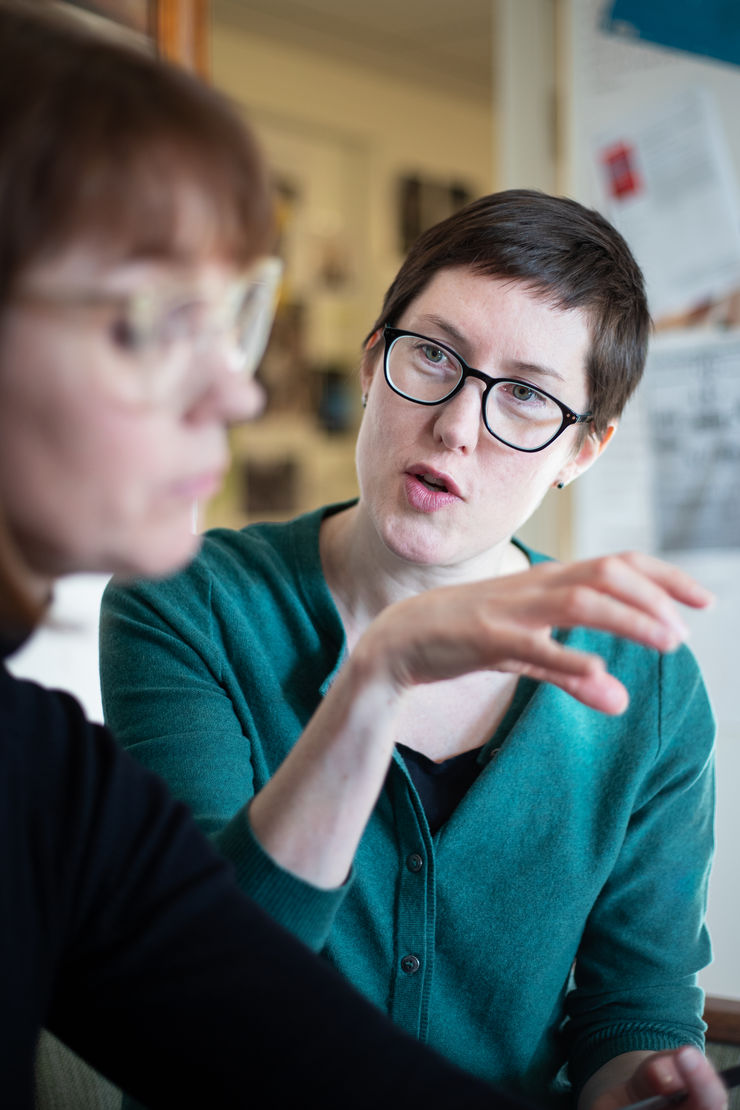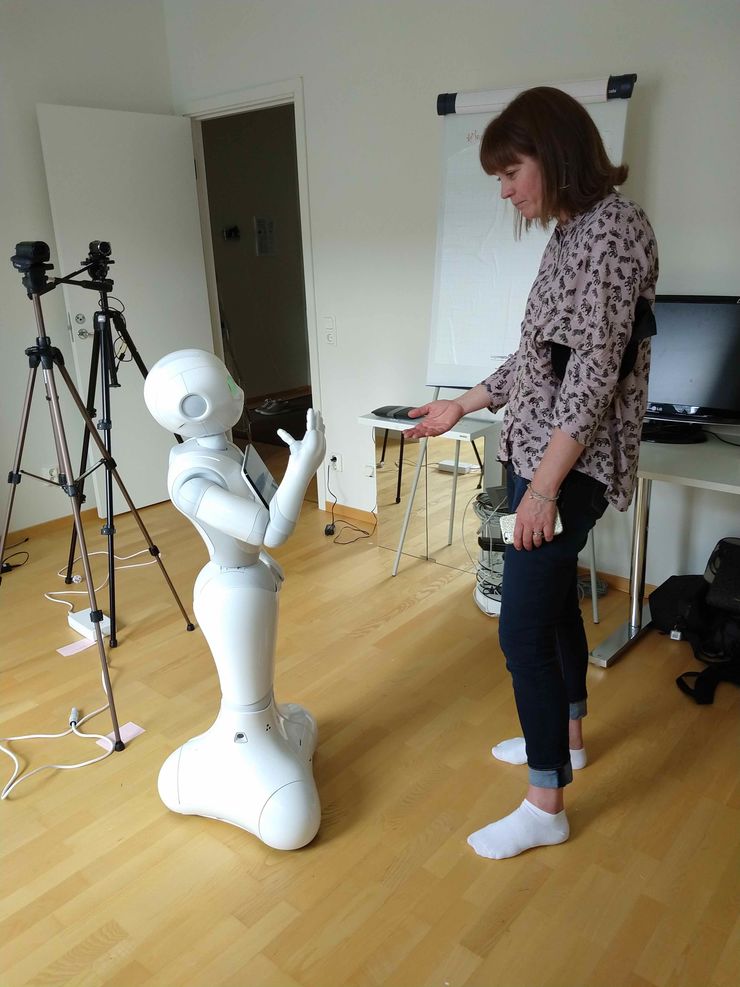Robots in schoool - teacher or toy?
One part of the project at LiU will study the use of robots in school. Together with a robot lab at Uppsala University, the Linköping researchers will test a human-like robot at schools in Uppsala. The robot will teach mathematics, and the pupils’ interaction with it will be filmed and analysed. The new project focuses on cases where robots are carrying out social tasks. Photo credit Charlotte Perhammar
The new project focuses on cases where robots are carrying out social tasks. Photo credit Charlotte Perhammar
“Robots are sometimes presented as an option in teaching contexts. But whether they are a good option or not depends on whether they can behave in a way that pupils feel is trustworthy”, says Katherine Harrison.
Brian Cantwell Smith adds that the way in which a user perceives a robot is also partly related to the user’s preconceptions of robots:
“If you think of a robot in a school, are you expecting a teacher or a toy? Our expectation of the robot affects how well we believe it succeeds.”
The researchers will investigate how to program the robot in order for trust to develop between human and machine. If a user swears at a robot, how will it respond?
“The feedback a robot gives in various situations has been pre-programmed. This is why we will study how developers program robots, and what they believe is important in robots’ communication”, says Ericka Johnson, who has previously investigated the relationship between humans and technology.
Norms built into the technology
Technology is no better than the people who create it. An example that has been discussed recently is that most AI assistants are women. Alexa helps Amazon’s users, Apple has its Siri, and at online banks and retail sites, users encounter AI assistants in female form.
“Values and norms exist and can be built into the technology. It’s important to be aware of that”, says Katherine Harrison, gently rocking her baby. Ericka Johnson and the robot Pepper
Ericka Johnson and the robot Pepper
It is not impossible that her own child will one day meet a robot at school. In Japan, robots have long been trialled in both schools and homes for the elderly. Pupils have tested learning English with the assistance of a robot, while a little robotic seal has got elderly Alzheimer’s patients to open up and become more communicative.
Katherine Harrison is positive to the idea of her child being taught by a robot in certain subjects.
“Having robots support children’s learning can have its advantages. I see how the robotic vacuum cleaner we have at home awakens the curiosity of my four-year-old, and how he tries to interact with it. But there are also aspects that concern me.”
Again, the issue of trust in technology arises.
“There are questions about how robots will handle morally difficult situations. Here the robots need development and training. For me, as a researcher in gender studies, it’s also important that the robot is programmed in a responsible way, so it doesn’t preserve outdated norms regarding for instance gender, the body and sexuality. But that is where our research project comes in. I hope our project can help prevent stereotypical roles being built into the technology.”
Three new LiU projects to study the consequences of AI
The research project that Ericka Johnson and Katherine Harrison are to lead is part of a national initiative for AI. The Wallenberg Foundations currently fund 16 research projects around the country; these will investigate the consequences of AI for society. Besides the robot project, the Wallenberg Foundations are funding two other projects at LiU: one on consumers’ trust in artificial intelligence and one on complex intelligent systems and the management of the future.
“The initiative is solidly focussed on the humanities and social sciences. When robots are to shift from just being labour in the background to also interacting with humans, researchers in the humanities will be important”, says Ericka Johnson. Katherine Harrison Photo credit Charlotte Perhammar
Katherine Harrison Photo credit Charlotte Perhammar
It’s absolutely vital that researchers from various disciplines like the humanities, social sciences and engineering sciences meet, according to the LiU researchers.
“Only by cooperating across boundaries can we discover how trust, empathy and accountability can be created at the interface between humans and robots”, says Katherine Harrison.
Ericka Johnson Photo credit Charlotte Perhammar“In an encounter between a human and a robot, it’s interesting to look at the emotions that arise. Does the robot inspire curiosity, anger or happiness? And how does the robot respond to the human’s actions?” asks Professor Ericka Johnson, who, together with Katherine Harrison, is principal investigator for a project on artificial intelligence, ethics and trust.

